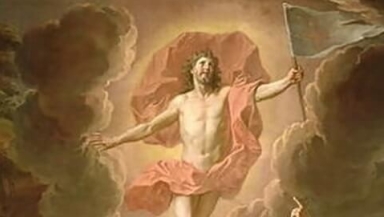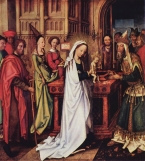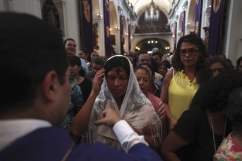We are in the season of Lent, approaching Easter, and before too long we will be reading stories of the Resurrection.

One of these is found in Mark's Gospel, in chapter 16:9-20. It tells of Jesus appearing to Mary Magdalene and to two disciples on the road to Emmaus, though it doesn't mention Emmaus. It also tells of Jesus' appearance to the 11 disciples and his command to go and preach the gospel to all nations.
In verse 18 he says they will drink poison and pick up snakes without coming to harm. In some American churches this verse is taken literally; people have been bitten and died in "snake-handling" churches.
The trouble is that these words were never in the original of Mark's Gospel. The earliest manuscripts stop at verse 8, and most modern Bibles make this clear. Also, the Greek of verses 9-20 is in a different style from the rest of the Gospel. It looks as though someone has added it because they didn't like the abrupt ending (a 10th century Armenian manuscript says they were by "the presbyter Ariston").
But what does this do to the end of Mark, and why does it finish where it does?
The original Gospel ends with the women discovering the empty tomb and speaking with an angel. Verse 8 says: "Trembling and bewildered, the women went out and fled from the tomb. They said nothing to anyone, because they were afraid."
This means that alone of the four Gospels, Mark has no account of the resurrection appearances of the Lord Jesus Christ.
There are four possible reasons for this.

1. The Gospel was never finished.
Mark may have been prevented from completing it for some reason. Perhaps he was ill, or perhaps he died or was imprisoned.
2. The conclusion was lost or destroyed by accident.
This is quite possible, but if so it's surprising that someone didn't know it well enough to remember it and write it out again.
3. The ending was deliberately suppressed.
This doesn't seem very likely at all, though it might appeal to readers of Dan Brown's The Da Vinci Code who think the Church went around suppressing all sorts of interesting things.
4. Mark actually wanted the Gospel to finish at verse 8.
The second and third options aren't very likely. The first option is quite possible, but it's rather strange that it's this particular bit that's missing. It would mean that Mark wrote it straight out from the beginning to the end, and that he left no notes or other material to guide someone to finish it for him. So what if verse 8 is exactly where he wanted it to end?
It means we're left with the witnesses frightened, confused, and – a very human reaction, this – running away. They are frightened by the angel, and even more frightened by the empty tomb. It is completely beyond their experience or their expectation, and they don't know how to handle it.
More than that, they "said nothing to anyone". They didn't know what to say, and so – wiser than most of us – they didn't say anything. God had broken into their lives, and rather than try to analyse or understand what had happened they remained silent. In the light of the rest of Mark's Gospel, this is quite ironic; Mark frequently tells us that Jesus told people to be silent about what he had done, only for them to tell everyone they met.
There's a sense here that the Resurrection is just too big for words. And in leaving us with the women, "trembling and afraid", Mark is perhaps coming very close to us, his readers 2,000 years later. We have no way of picturing or imagining the Resurrection either. It leaves us trembling and bewildered.
So perhaps Mark knew exactly what he was doing. His Gospel was not unfinished or lost; it ends where he wanted it to end, with suspense, drama and uncertainty. Because the story isn't over: it continues in Acts, and it has continued ever since. The Resurrection is not the end of the Christian drama, but an episode within it. The story continues in us.


















